A cancer diagnosis is one of the most challenging and difficult times a person can face. Sleep is a key to overall health and both mental and physical health. Every year, millions of people experience trouble sleeping and many times a health issue is to blame for troubled sleep. From sleep apnea to insomnia, there are many common ailments and conditions that can affect sleep.
Poor sleep or lack of sleep is a sign that there is something wrong internally. Add cancer to the mix and sleep becomes even more important.
Anywhere from one third to one-half of cancer patients report sleep problems for various reasons. When your body is fighting cancer, sleep becomes even more important. Getting the restful, restorative sleep your body needs while dealing with cancer can be difficult or seemingly impossible to get.
Read on to find out why cancer patients have trouble sleeping and a few ways to sleep better while fighting cancer.
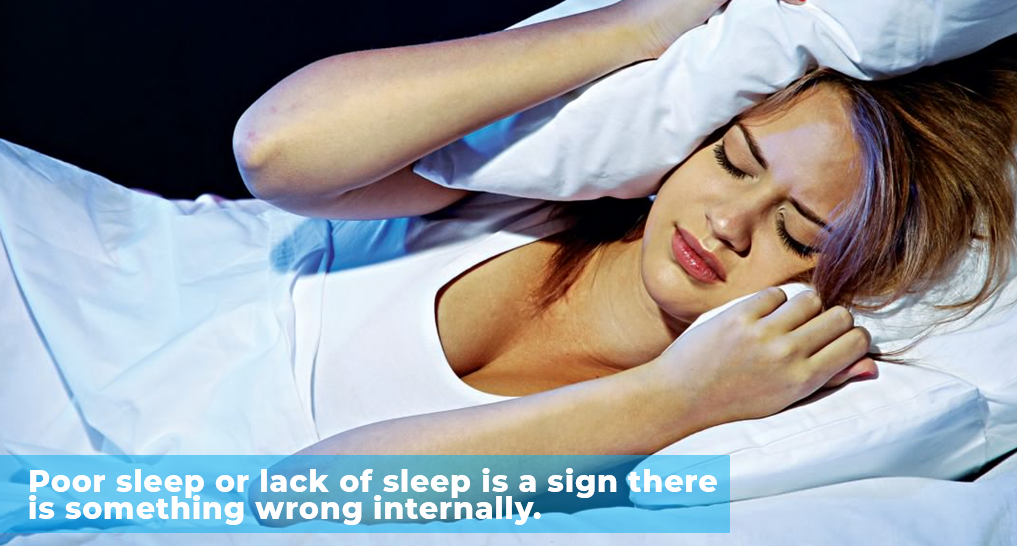
Causes of Sleep Deprivation in Cancer Patients
There is not one set reason why those suffering from cancer can and usually have trouble sleeping, but rather multiple reasons that are often compounded. These factors as well as other outside influences can leave you tossing and turning. Here are some of the main causes of sleep problems faced by cancer patients.
Stress or Anxiety
Stress and anxiety are common for everyone, but even more so for cancer patients facing uncertainty and stress around their illness and treatments. Cancer patients have numerous stressors in their lives added when receiving a diagnosis or undergoing treatment.
Anxiety and stress are common causes of insomnia. Many find it difficult to stop racing thoughts, especially at night. When we try to relax and calm our minds to get to sleep, our minds often ruminate, or replay intrusive thoughts repeatedly. These thoughts and the inability to shut them off disrupt sleep.
Not only are sleep problems a side effect of anxiety, lack of sleep can also cause anxiety. Also, many who suffer from anxiety experience anticipatory anxiety; the fear of anxiety. This fear of the anxiety and lack of sleep causes more anxiety. This vicious circle can seem never ending. Luckily, there are some things that can help.
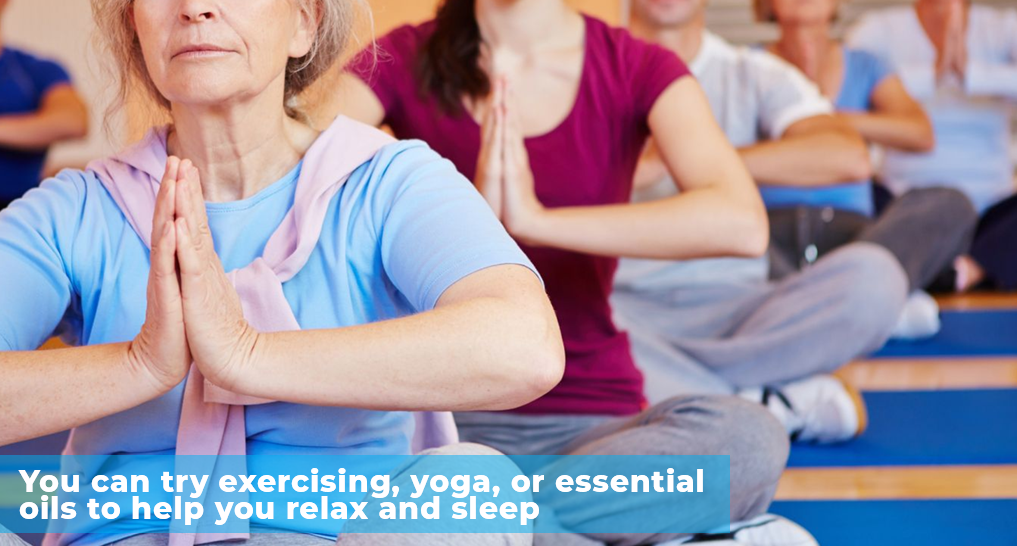
Tip/Solution: Finding the best method for calming your anxiety and getting to sleep is personal. What works for one person might not work for you. One of the top recommendations for easing anxiety is exercise. While battling cancer, certain psychical activities can be difficult or completely off limits. Light daily exercise like a short walk or yoga can help you ease anxiety at night.
You can also try essential oils like lavender can help you relax and get to sleep. Note that some essential oils might be too strong for some and cause adverse reactions. When experimenting with essential oils, make sure to purchase quality products from a reputable source.
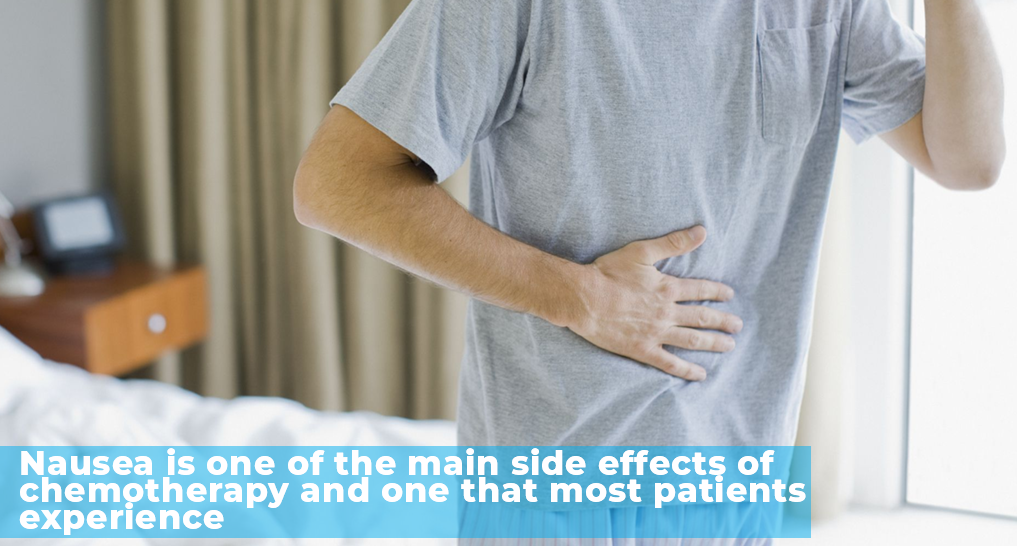
Symptoms Like Nausea and Headache
Nausea is one of the main side effects of chemotherapy and one that most patients experience. According to the American Cancer Society, the likelihood of experiencing nausea and vomiting after chemotherapy depends on your health history and the dose and type of treatment.
Headaches are a common side effect of various medications and treatments, including chemotherapy and targeted radiation. Certain cancers including spinal, pituitary gland, brain, and upper throat cause headaches. Vomiting can also cause headaches due to electrolyte imbalance and loss.
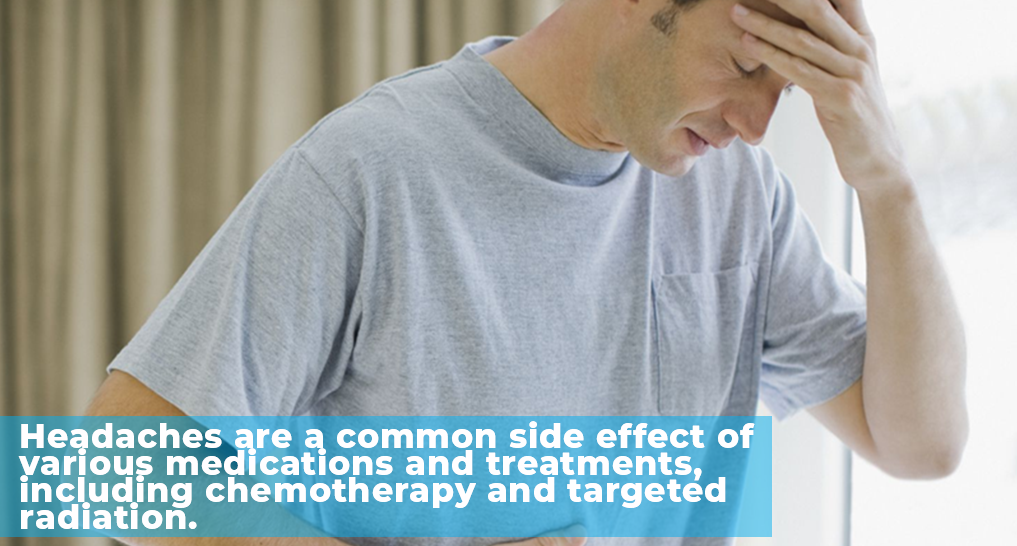
Tip/Solution: Trying to sleep while dealing with nausea and/or a headache is impossible. During or after treatment, your doctor can prescribe and administer anti-nausea medication like Zofran. Anti-anxiety medications are sometimes prescribed or administered as well. Eating a small meal before and after treatment can help prevent nausea and headaches due to low blood sugar.
To better manage headaches while battling cancer, your doctor can advise you on the best medications to take that will not interact with your treatments. Meditation, exercise, staying hydrated, avoiding smoking, and eating regular meals can prevent headaches.
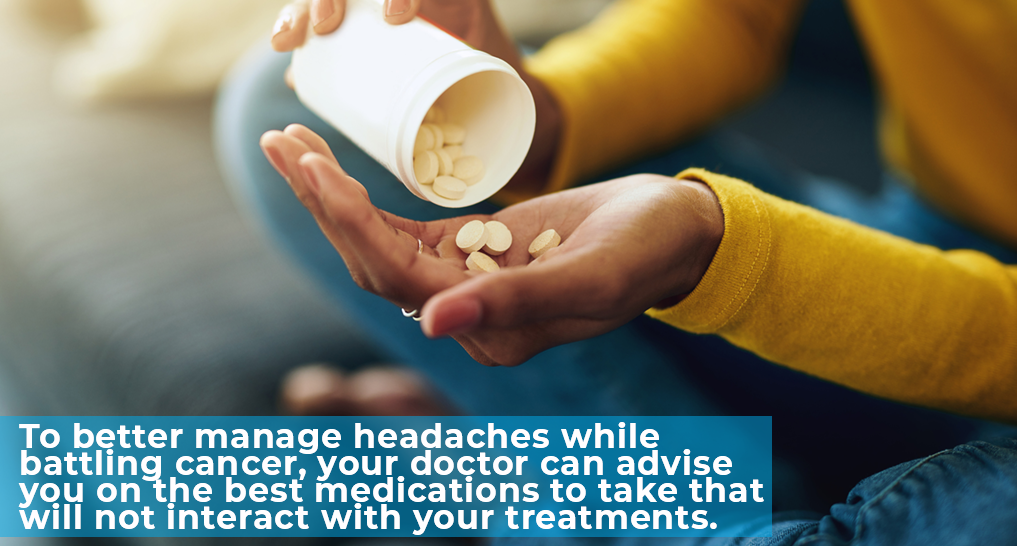
Interrupted Sleep Environments
Friends and family mean well and will offer to help during difficult times. While they mean well, sometimes the extra people in your house can turn from a kind gesture to an annoyance that can wreck your sleep and leave you feeling worse.
Tip/Solution: Set healthy boundaries with your friends and family. Or, if you do not want to confront them, have your spouse, family friend, or another trusted individual to talk to them for you. Let them know you appreciate their concern and help while emphasizing that you need rest to heal.
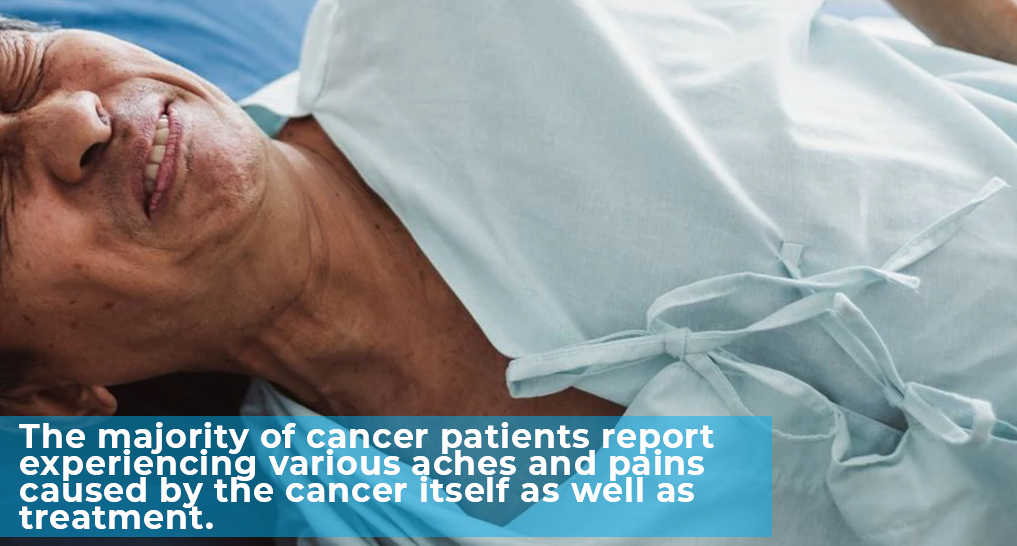
Pain
Pain of any kind can prevent a good night's sleep and can be even more difficult to get the sleep you need when dealing with pain from cancer. The majority of cancer patients report experiencing various aches and pains caused by the cancer itself as well as treatment. Cancer-adjacent pain is influenced by various factors such as the type of cancer, growth rate of the cancer, tumors pressing on nerves/tendons, and pain in the bones from where cancer has spread.
Pain can also occur from surgery wounds and as a side effect of treatment. Chemotherapy can cause painful side effects like peripheral neuropathy-nerve damage that causes pain, burning, tingling, numbness, or weakness in the extremities.
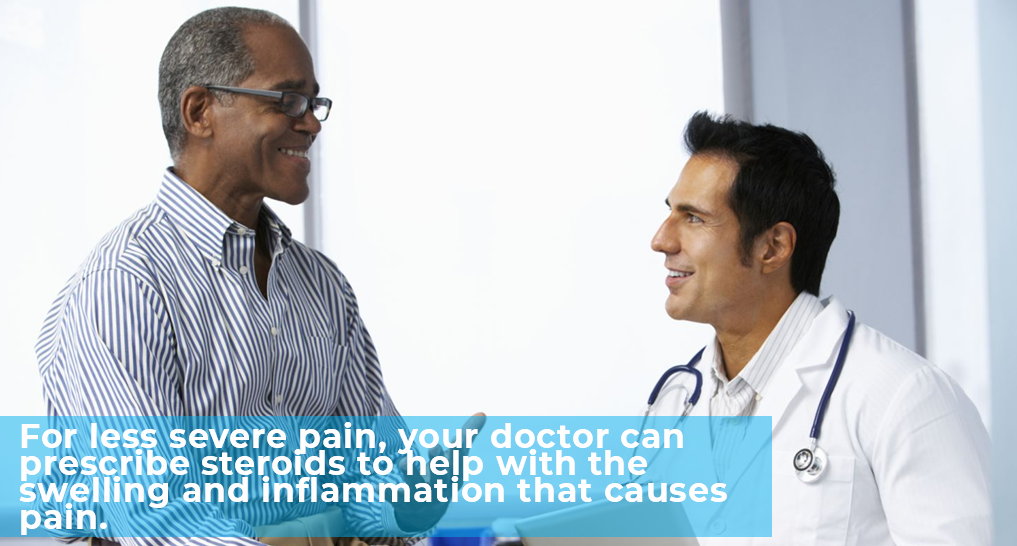
Tip/Solution: While pain is a side effect of cancer and cancer treatments, having cancer does not mean you have to be in pain. Many cancer patients experiencing pain are prescribed opioid pain medication. These medications are highly addictive and have side effects. For less severe pain, your doctor can prescribe steroids to help with the swelling and inflammation that causes pain. OTC pain medications can also be taken.
Talk to your doctor if you are having trouble sleeping due to cancer pain so they can determine the best treatment option for you.
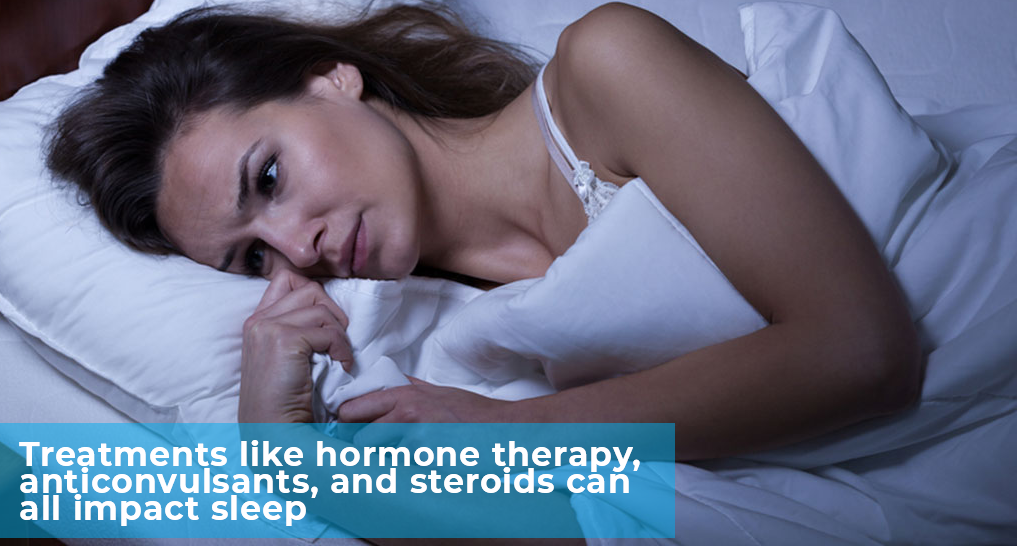
Medication and Treatment Side Effects
The powerful drugs that can help with cancer are truly a scientific miracle but can cause debilitating side effects that can interfere with sleep. Treatments like hormone therapy, anticonvulsants, and steroids can all impact sleep.
Steroids are known to cause insomnia, and a “revved up” feeling. Hormone therapy for reproductive system cancers causes hot flashes at night.
Other common side effects include gastrointestinal problems, poor bladder control, anxiety, and breathing problems.
Tip/Solution: If you are experiencing sleep disruptions due to cancer treatment, talk to your doctor about possibly switching medications/treatments. If side effects are severe enough, your doctor can prescribe sleep aids.
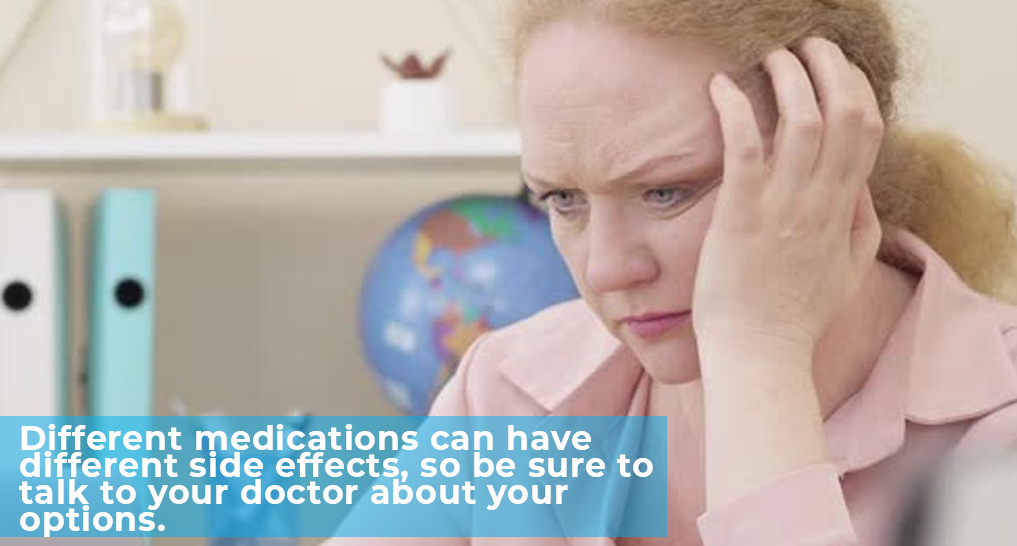
The Importance of Sleep for Cancer Patients
Sleep is vital for all aspects of health. During the deepest stages of sleep, our body repairs damaged cells and DNA. This process helps strengthen the immune system and promotes new cell growth. Sleep heals our bodies and helps repair the damage caused by the cancer and treatments.
Chemotherapy weakens the immune system even after the patient has completed a course of treatment. Sleep also helps lessen the inflammation in the body caused by the cancer. Fighting off the inflammation helps the body heal and fight off infection.
According to the Sleep Foundation, “Without sufficient sleep, your body makes fewer cytokines, a type of protein that targets infection and inflammation, effectively creating an immune response. Cytokines are both produced and released during sleep, causing a double whammy if you skimp on shut-eye.”
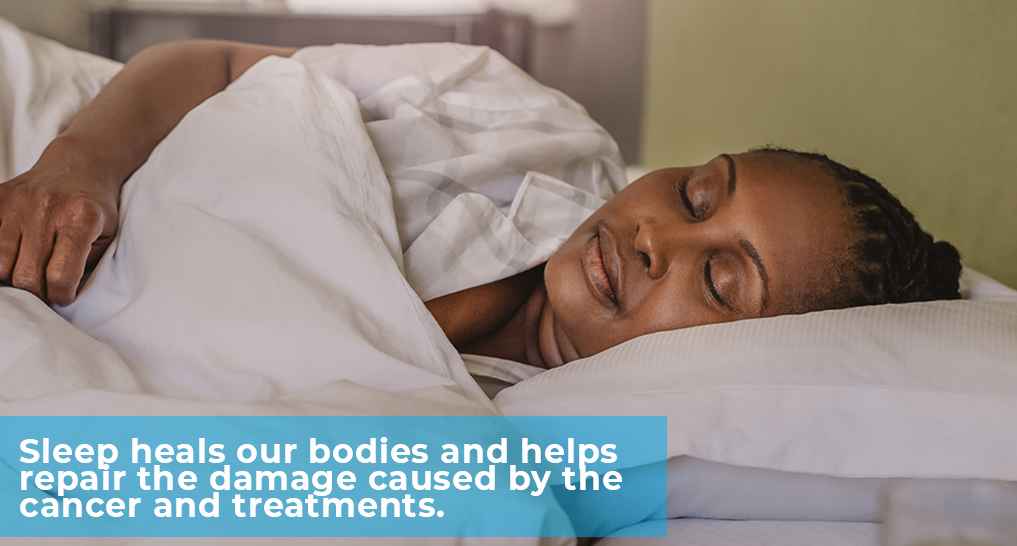
Does Sleep Influence Cancer Risk?
While lack of sleep is not the main cause of cancer, there are several studies linking lack of sleep to increased cancer risk. A study conducted by the International Journal of Cancer found that women who worked an irregular schedule or shift work had a 30% increased risk in breast cancer than women who worked traditional hours. A similar study found that men who work irregular hours also have an increased risk of prostate cancer.
Too Little
Lack of sleep and poor quality sleep is a massive problem in the United States. Studies show that at least 1 in 3 American adults do not get the recommended minimum amount of sleep (7 hours) per night.
A lack of sleep is tied to many health concerns. The current data on whether or not lack of sleep definitively causes cancer is mixed, but there is a clear connection. Studies show that lack of sleep is tied to specific types of cancer, including colorectal cancer. Another study found that lower melatonin levels from shorter sleep directly correlates to increased breast cancer risk.
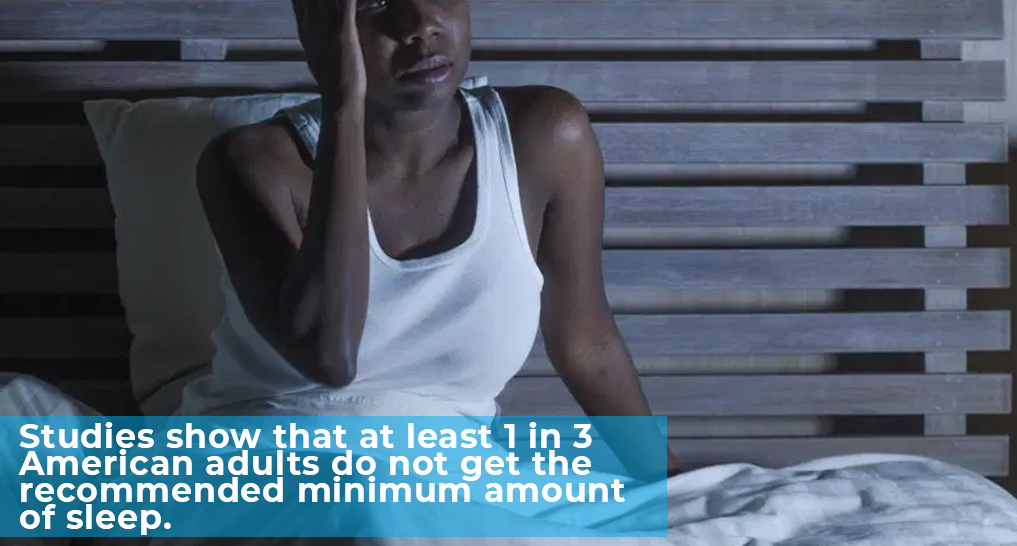
Too Much
Most of us are trying to get more sleep, but others are getting too much sleep. Oversleeping is often overlooked in the medical field and in medical research. Anyone who has taken a nap and woke up feeling even more groggy can attest to experiencing the ill effects of too much sleep. Getting too much sleep is hard to imagine for those who keep hitting the snooze button. Oversleeping or hypersomnia is linked to depression, cardiovascular disease, and neurodegenerative diseases.
Oversleeping is defined as sleeping for more than 9 hours per night. Studies on the connection between hypersomnia and increased cancer risk are limited. One study found a link between hypersomnia and liver cancer in obese, postmenopausal women. Another found a link between estrogen-fueled breast cancer and oversleeping.
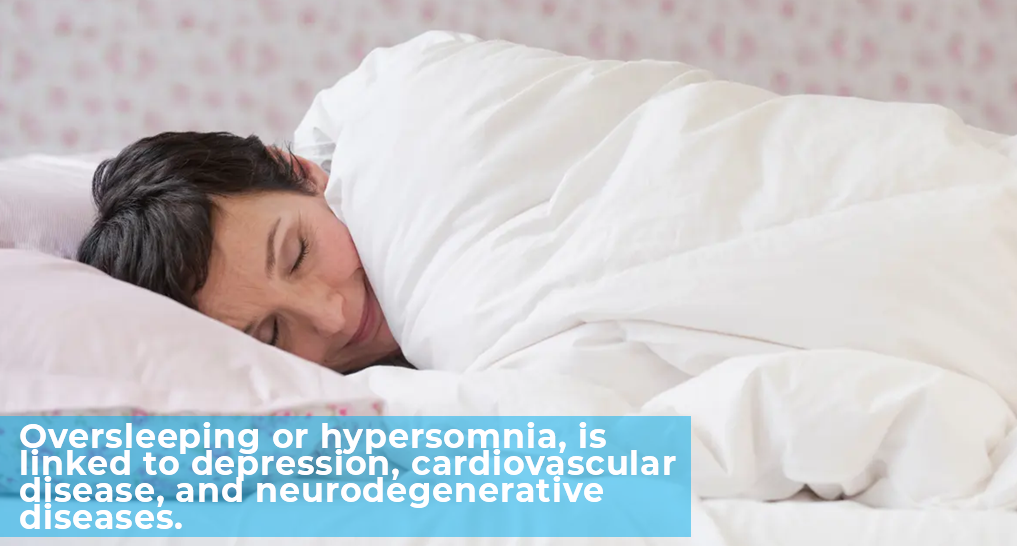
Disrupted Sleep and Cancer Risk
The link between disrupted, poor quality sleep and cancer is more clear. More research has been conducted on the link between disrupted sleep and cancer. Studies show that there is an increased risk of breast, prostate, and thyroid cancers in those who regularly experience low quality and disrupted sleep.
A 2017 study of breast cancer patients found patients with disrupted sleep are more likely to experience more aggressive cancer than those with consistent and quality sleep.
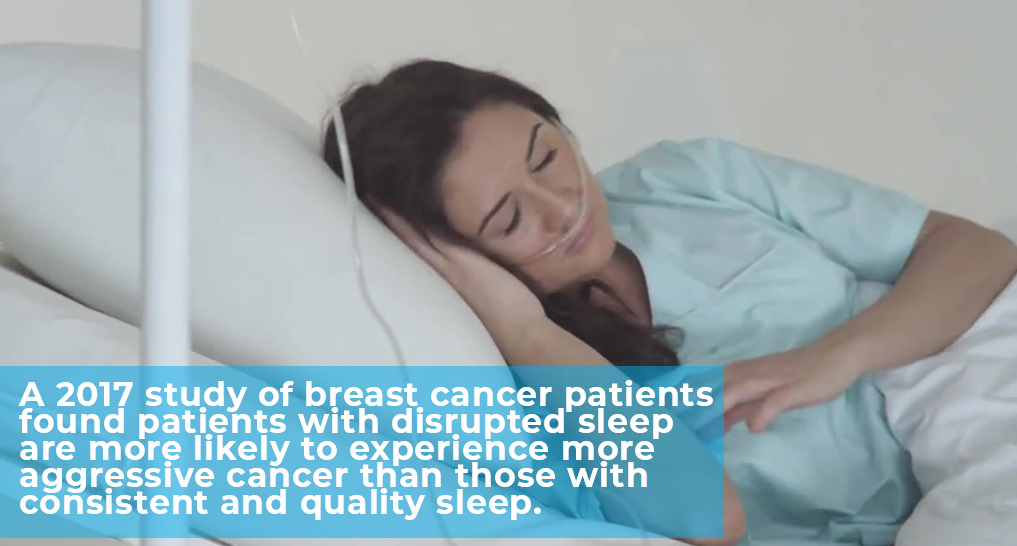
Resources for Cancer Patients
If you or a loved one have been recently diagnosed with cancer, navigating this life event can be difficult. Many patients and their families feel lost, confused, and don’t know where to go for additional help beyond your doctor. Luckily, there are numerous resources available to help both patients and their families.
American Cancer Society
The American Cancer Society is a nationwide voluntary health organization dedicated to eliminating cancer as a major health problem. The American Cancer Society has regional offices all over the country to provide support. The organization’s goals include prevention, support, research, and increasing access to care.
Cancer.net
Cancer.net is a blog written by doctors from the American Society of Clinical Oncology. The site provides some of the best cancer information online including a database of types of cancer, advice on care, and treatment information.
Cancer Research Institute
Cancer Research Institute is a nonprofit that funds innovative cancer research. Their website features various resources for patients including information about the science of cancer, health guides, and webinars.
Triage Center
The Triage Center is a nonprofit that focuses on education around the legal and practical issues that cancer patients such as insurance, finances, work and employment.
Most are probably not aware of the link between sleep and cancer. This important link and health implication should not be ignored. Talk to your doctor about your sleep habits and possible cancer risks. Remember that cancer risk varies based on genetics, overall health, and lifestyle choices.
If you are interested in learning more about SleePare and for additional sleep and health resources, visit our blog.





![2025 Cancer Sleep Guide [How to Sleep Better] 2025 Cancer Sleep Guide [How to Sleep Better]](https://www.sleepare.com/wp-content/uploads/2020/11/Sleep-and-Cancer-6.png)














 Showrooms
Showrooms

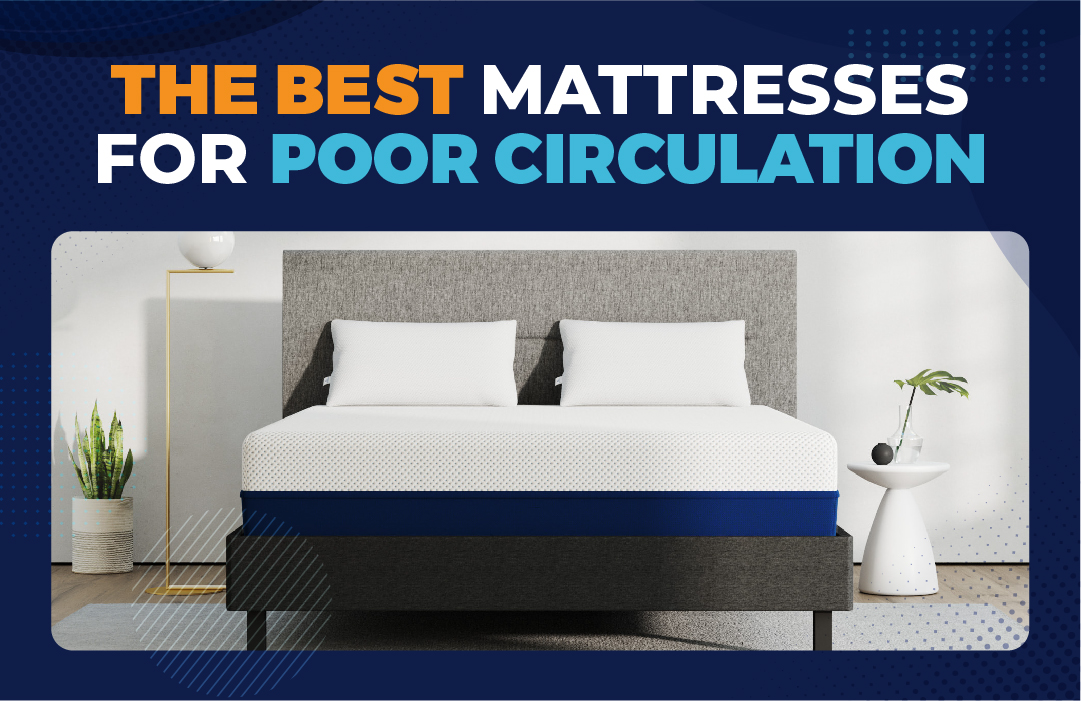



Meet The Author:
Shanir Kol
Shanir Kol, founder and CEO of SleePare, pioneered the “Try and Buy” model in eCommerce, enhancing mattress shopping by combining in-store trials with online purchases. Launching in 1999, his company focuses on customer satisfaction and eco-friendly practices, aiming to minimize mattress waste and expand sustainably.